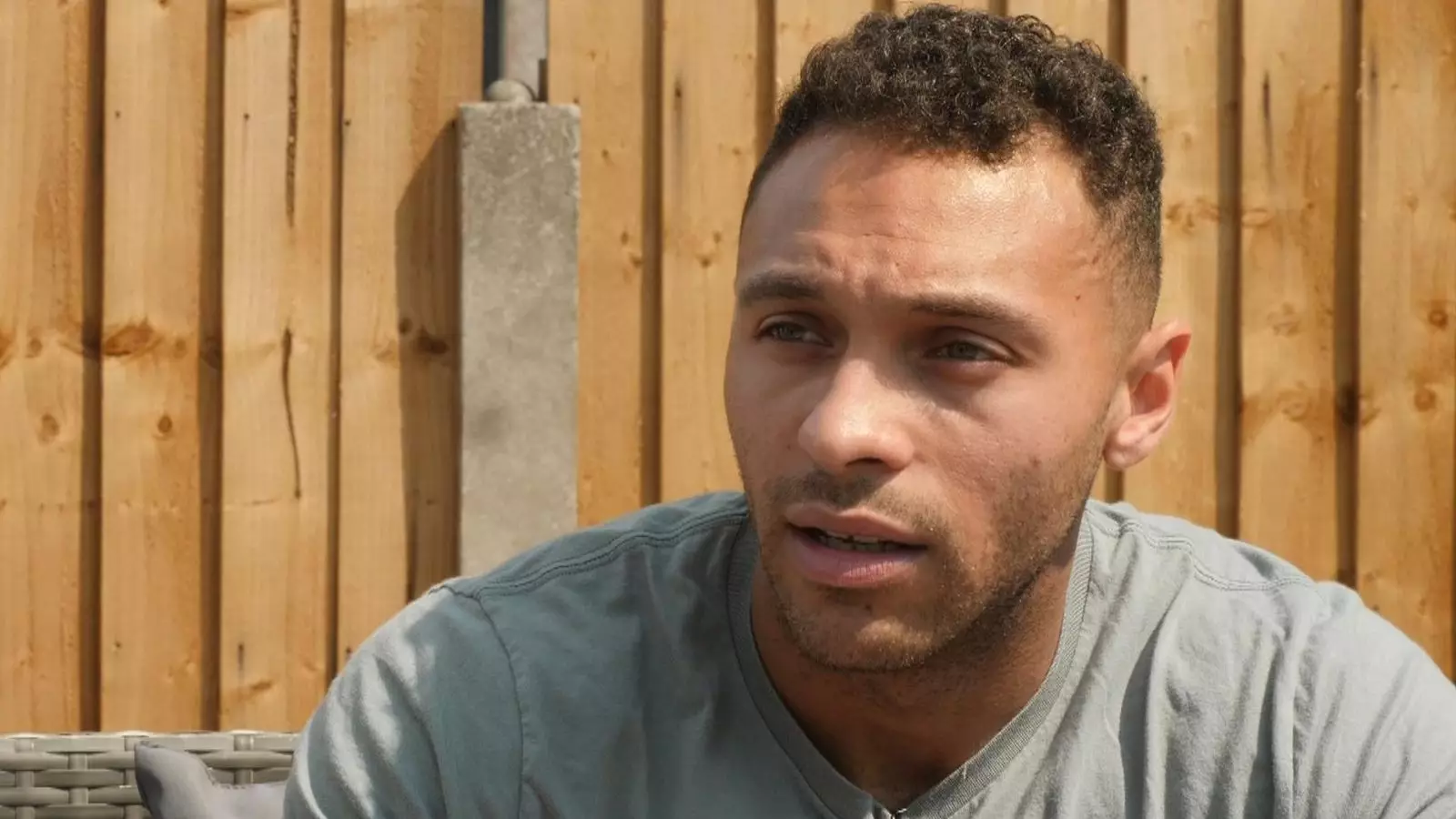In the heart of Southport, an event unfolded that would leave an indelible mark not only on the victims and their families but also on witnesses who stumbled into a scene of sheer chaos and horror. Joel Verite, a local window cleaner with a past as a rugby league player, recounted a day that transformed from an ordinary lunch break into a nightmare, one that involved the tragic stabbings of innocent children. Such incidents, when they invade the tranquility of everyday life, challenge the very fabric of our sense of security and community.
The tragic events began at The Hart Space, a venue meant for joy and creativity, where a Taylor Swift-themed holiday club was in full swing. Mr. Verite, who had been enjoying his break, found himself thrust into a situation that demanded courage amidst unfathomable fear. His initial reaction upon witnessing the harrowing aftermath—a little girl gravely injured, bloodied, and in shock—was one of instinctual compassion. The raw emotion of that moment, amplified by the chilling words of the girl, “He’s killing kids over there,” encapsulates both urgency and horror.
As Mr. Verite ran toward the chaos, he was confronted with more than just the physical wounds of victims; he encountered the surreal nature of a disaster that seemed ripped from the pages of fiction. His description encapsulates an all-too-familiar horror for many—a disaster film brought to life, but with the grim spectacle of real suffering. It was a haunting moment, far from mere visual trauma, embedding itself in his memory.
When Mr. Verite decided to enter the venue, the stakes rose dramatically. Suddenly, he found himself locking eyes with the assailant. This brief moment of visual contact—a second that seemed to stretch indefinitely—symbolizes the confronting reality of violence. The knot of desperation and fear in his stomach must have tightened as he processed the sight of a man brandishing a knife, a symbol of danger and a clear threat to lives still within his line of sight.
Feeling an overwhelming desire to confront the attacker was natural, yet Mr. Verite eventually opted for self-preservation—a characteristic instinct that many can empathize with. This internal conflict captures the essence of human nature when faced with perilous situations: the desire to help others often clashes with the basic instinct for survival. His impulsive, yet instinctive reactions portray the profound complexity of heroism, which isn’t solely defined by acts of bravery but also by making the best choice in a tempest of confusion.
The Pain of Observation
As the chaos unfolded, not only was Mr. Verite absorbing the tragedy, but he was also forced to standby as emergency protocols were enacted. His frustration about the delayed response time of police emphasizes the urgency that many victims’ families must have felt while waiting for their loved ones to be rescued. It was a moment marked not only by fear and shock but also by an overwhelming sense of helplessness as he screamed for assistance, wishing desperately to alleviate the suffering around him.
Witnessing the anguish of parents, who were “hysterical” at the scene, deepened the emotional weight for Mr. Verite. This collective grief became palpable, illustrating a community heartbroken by violence that seemed incomprehensible. The children, stripped of their innocence, and terrified in what should have been a safe space, added another layer of despair—the fear that this generation might bear the lasting scars of witnessing such violence.
Reflections on Trauma
In the aftermath, Mr. Verite grapples with the emotional toll of his experience, a sentiment echoed by many who encounter trauma, particularly those who witness violence. Despite his brave actions, he hesitates to label himself a hero. This reluctance points to a deeper understanding of heroism that permeates our culture—a recognition that often, the lines between bravery and vulnerability are blurred, and that even those who act decisively in the face of terror can feel the weight of trauma deeply.
As a new father, Mr. Verite’s reflections on the suffering of the children resonate profoundly, facilitating a personal connection to the pain experienced by the families of victims. Such tragedies serve as chilling reminders of our fragility in the face of unexpected violence and the long paths that healing often requires.
The Southport stabbings serve as a stark reminder of the unpredictable risks that can infiltrate our lives. Joel Verite’s experience showcases the potential for heroism amidst chaos, tempered by a recognition of human vulnerability. In processing such events, communities must come together—not just to mourn the loss of innocents but also to support one another through the long journey of healing. In the shadow of tragedy, it is this resilience of community and spirit that ultimately shines light on the way forward.


Leave a Reply